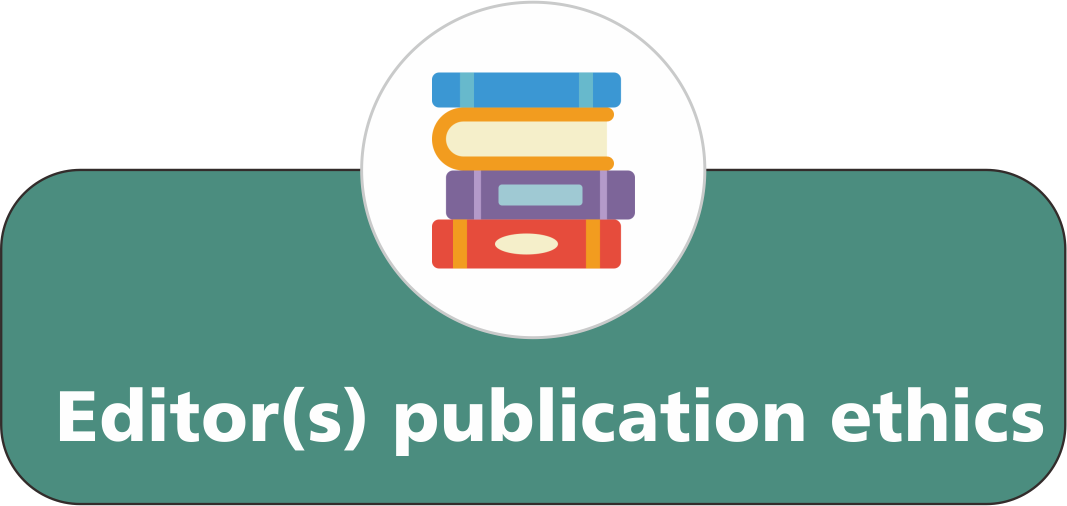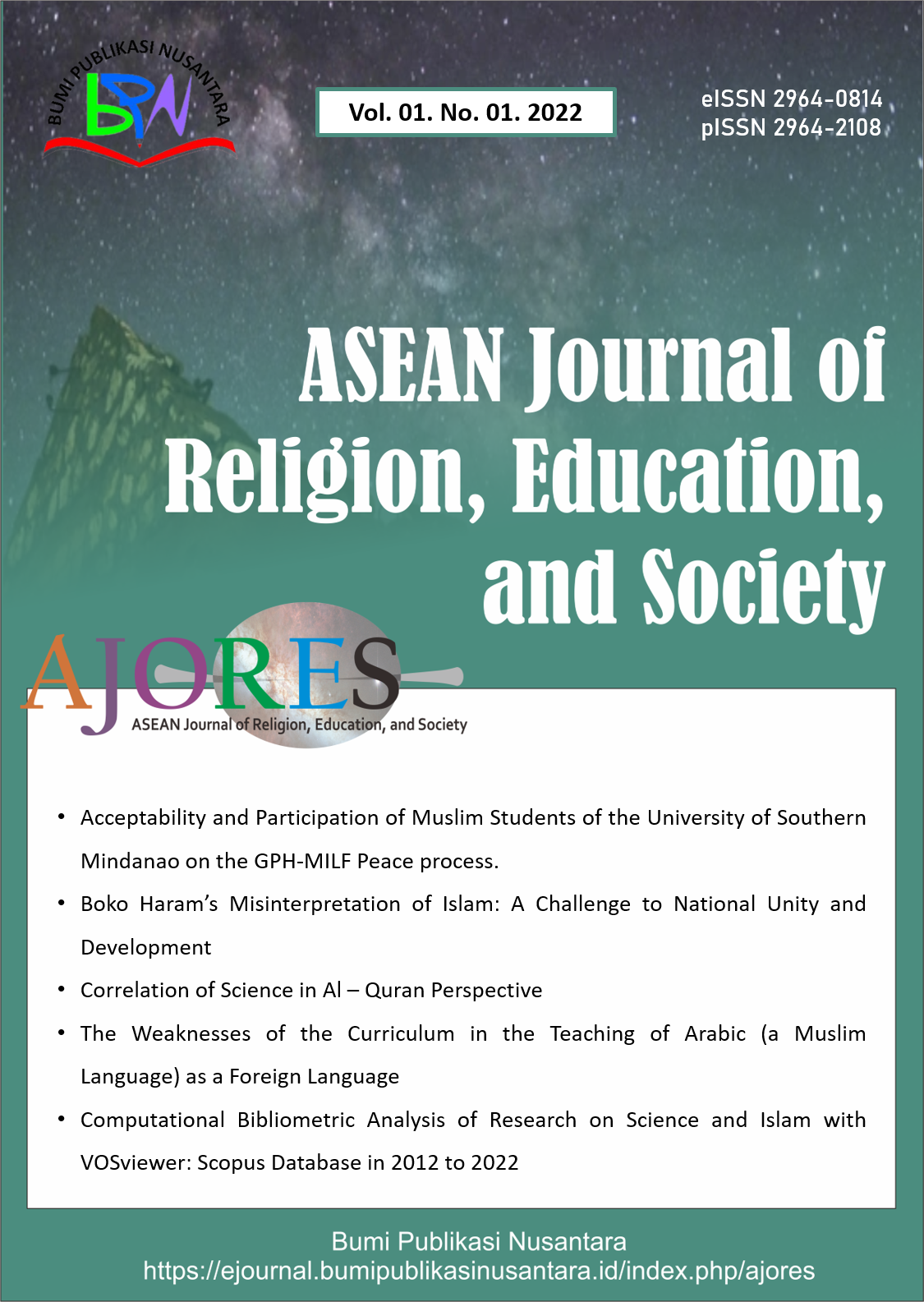Evaluation of Apprenticeship Class in a Private Christian Elementary School in the Philippines
 ), Karisse Lynelle A Delos Santos(2), Shaley Natalie C. Ramirez(3), D. Duchess(4), Catybay Francisco(5), Maikaela Angela Tañedo Quah(6), Jacob Montemayor Punzalan(7), Anton Luke Manansala Paloma(8), Sophia Gabrille Lao(9),
), Karisse Lynelle A Delos Santos(2), Shaley Natalie C. Ramirez(3), D. Duchess(4), Catybay Francisco(5), Maikaela Angela Tañedo Quah(6), Jacob Montemayor Punzalan(7), Anton Luke Manansala Paloma(8), Sophia Gabrille Lao(9),
(1) Department of Education
(2) Lante Christian Academy
(3) Department of Education
(4) Department of Education
(5) Department of Education
(6) Department of Education
(7) Department of Education
(8) Department of Education
(9) Department of Education
 Corresponding Author
Corresponding Author
Abstract
Keywords
References
Arnone, M. P., Small, R. V., Chauncey, S. A., and McKenna, H. P. (2011). Curiosity, interest and engagement in technology-pervasive learning environments: A new research agenda. Educational Technology Research and Development, 59, 181-198.
Ates, A. (2021). The relationship between parental involvement in education and academic achievement: A meta-analysis study. Pegem Journal of Education and Instruction, 11(3), 50-66.
Böhn, S., and Deutscher, V. (2022). Dropout from initial vocational training–A meta-synthesis of reasons from the apprentice's point of view. Educational Research Review, 35, 100414.
Darling-Hammond, L., Flook, L., Cook-Harvey, C., Barron, B., and Osher, D. (2020). Implications for educational practice of the science of learning and development. Applied Developmental Science, 24(2), 97-140.
Decker, D. (2021). Expanding college-connected apprenticeships to improve social equity and inequality. CTE Journal, 9(1), 1-11.
Ertelt, B. J., Frey, A., Hochmuth, M., Ruppert, J. J., and Seyffer, S. (2021). Apprenticeships as a unique shaping field for the development of an individual future-oriented “vocationality”. Sustainability, 13(4), 2279.
Ezenwakwelu, C. A., Egbosionu, N. A., and Okwo, H. U. (2019). Apprenticeship training effects on entrepreneurship development in developing economies. Academy of Entrepreneurship Journal, 25(1), 1-21.
Fantinelli, S., Cortini, M., Di Fiore, T., Iervese, S., and Galanti, T. (2024). Bridging the gap between theoretical learning and practical application: A qualitative study in the Italian educational context. Education Sciences, 14(2), 198.
Foster‐Collins, H., Mattick, K., and Baumfield, V. (2023). Workplace support for newly qualified doctors and secondary school teachers: A comparative analysis. British Educational Research Journal, 49(5), 1005-1043.
Gan, Z., An, Z., and Liu, F. (2021). Teacher feedback practices, student feedback motivation, and feedback behavior: how are they associated with learning outcomes?. Frontiers in Psychology, 12, 697045.
Hochmuth, M., Geßler, A. N., Seyffer, S., and Frey, A. (2021). Challenges in the digitization of apprenticeships during the coronavirus pandemic: Who needs special assistance?. Sustainability, 13(21), 11701.
Johler, M., and Krumsvik, R. J. (2024). Increasing inclusion through differentiated instruction in a technology-rich primary school classroom in Norway. Education 3-13, 52(8), 1207-1221.
Neuenschwander, M. P., and Hofmann, J. (2022). Career decision, work adjustment, and person–job fit of adolescents: Moderating effects of parental support. Journal of Career Development, 49(1), 76-89.
Reeve, J. (2013). How students create motivationally supportive learning environments for themselves: The concept of agentic engagement. Journal of educational psychology, 105(3), 579.
Sattler, P., Wiggers, R., and Arnold, C. (2011). Combining workplace training with postsecondary education: The spectrum of Work-Integrated Learning (WIL) opportunities from apprenticeship to experiential learning. Canadian Apprenticeship Journal, 5, 1-33.
Schmid, E., and Garrels, V. (2021). Parental involvement and educational success among vulnerable students in vocational education and training. Educational Research, 63(4), 456-473.
She, C., Liang, Q., Jiang, W., and Xing, Q. (2023). Learning adaptability facilitates self-regulated learning at school: the chain mediating roles of academic motivation and self-management. Frontiers in Psychology, 14, 1162072.
Shore, A., and Dinning, T. (2023). Developing student's skills and work readiness: An experiential learning framework. Journal of Work-Applied Management, 15(2), 188-199.
Tus, J. (2021). Amidst the online learning in the Philippines: the parental involvement and its relationship to the student's academic performance. International Engineering Journal for Research & Development, 6(3), 1-15.
Villanueva, D. C. C., Quines, L., and Millardo, K. F. M. R. (2022). Exploring teachers’ performance handling multiple ancillary functions: A multiple case study. International Journal of Novel Research in Education and Learning, 9(5), 1-16.
Wang, R., Zulkifli, N. N., and Mohd Ayub, A. F. (2024). Investigating the impact of the stratified cognitive apprenticeship model on high school students’ math performance. Education Sciences, 14(8), 898.
Article Metrics
Abstract View : 453 times
: 453 times Download : 177 times
Download : 177 times
Refbacks
- There are currently no refbacks.
Copyright (c) 2025 Bumi Publikasi Nusantara

This work is licensed under a Creative Commons Attribution-ShareAlike 4.0 International License.







